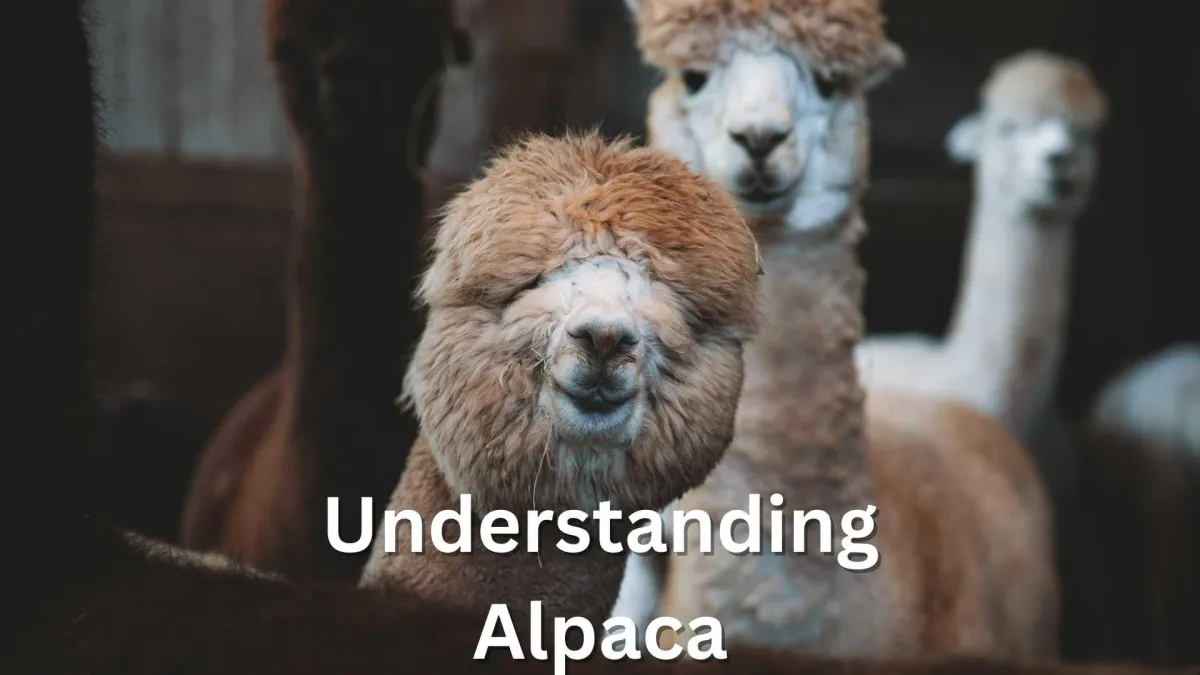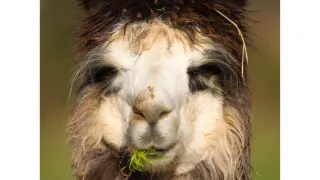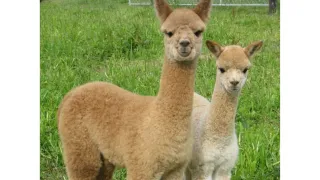Understanding Alpaca

Behaviour, senses, and care for lifestyle block herds
Alpacas have become a popular choice for lifestyle block owners across New Zealand. They’re quiet, curious, and often seen as easier to manage than other livestock. But while they’re low-maintenance in some ways, alpacas are not bulletproof. Understanding how they think, behave, and interact with each other will help you keep them calm, healthy, and thriving.
This guide draws on the work of Dr Clive Dalton, adapted for modern blocks and small-scale herds. It’s aimed at owners with two to twenty alpacas, not large
commercial breeders.
Senses and Communication
Vision
Alpacas have large eyes and a wide field of view. Their vision is good at detecting movement, especially at the sides. They’re very alert animals and notice unfamiliar objects or people quickly.
They’re sensitive to sudden changes like shadows or moving equipment and may shy or run if startled. However, with familiar routines and gentle handling, they become quite steady.
Hearing
Alpacas have excellent hearing. Their ears are mobile and will swivel toward sounds. They can be jumpy around sudden noises, especially machinery or barking dogs, so calm handling and a quiet environment go a long way.
They also respond to the tone of human voices and quickly recognise routine sounds like a feed bucket or gate opening.
Smell
Smell plays a role in bonding and recognising herd mates, particularly during breeding. Alpacas also use smell to explore new objects or feed. Their sense of smell isn’t as dominant as in pigs or dogs, but they are sensitive to unfamiliar scents and changes in their environment.
Alpaca Communication
Alpacas are quiet animals, but they do communicate with one another and with you.
Humming: The most common sound, used to maintain contact, express interest, or indicate mild anxiety
Snorting: A warning signal, often used to say “back off”
Grumbling or clicking: Displeasure or tension between herd mates
Screaming: High-pitched distress call, usually during restraint or when separated from the herd
Orgling: The strange gargling noise males make when mating
Body language also matters. Ears pinned back, a raised tail, or stiff posture may signal irritation or dominance. A relaxed alpaca has ears upright and a soft gaze.
Social Structure and Herd Behaviour
Alpacas are herd animals. They are not happy alone and should always be kept in groups of at least two, but preferably three or more.
They form social bonds and have a loose pecking order, especially among females. Males, particularly entire males, can be more territorial or aggressive when kept together.
Introducing new alpacas requires care:
Use fences for initial contact
Avoid crowding during integration
Monitor feeding closely to ensure timid animals get access
Alpacas rarely bite or kick, but they may spit when annoyed or anxious. Spitting is mainly aimed at each other, but humans standing in the way may get caught.
Daily Patterns and Movement
Alpacas are grazers, not browsers. They will spend most of the day:
Grazing
Resting or chewing cud
Dust bathing
Interacting quietly with herd mates
They prefer open spaces and will make use of natural shelter. Alpacas follow routine paths and may develop toileting areas in paddocks, which helps with pasture hygiene and parasite control.
Their light feet do less pasture damage than cattle or sheep, making them a good choice for wet-prone blocks.
Handling and Movement
Alpacas don’t like being touched suddenly or restrained roughly. They are prey animals by instinct and will react with flight, freezing, or occasionally spitting if cornered.
When handling:
Work calmly and predictably
Use catch pens or small yards
Approach from the side, not head-on
Support under the chest and hindquarters when lifting young animals
Avoid grabbing ears, tail, or legs
Most alpacas can be halter-trained, though some tolerate it better than others. Regular gentle handling from a young age helps.
Breeding and Cria Care
Alpacas are induced ovulators. Females come into season depending on mating, not a cycle. This allows year-round breeding, but most lifestyle block owners plan for spring or summer births.
Mating Behaviour
Introduce female to a proven male in a safe pen
The male will orgle and attempt to mount
Mating usually lasts 10 to 30 minutes
Spitting off is used by females to indicate they are already pregnant
Gestation
Average is 11.5 months
Cria are usually born during daylight
Intervention is rarely needed, but assistance may be required if the weather is poor or the cria is weak
Cria Care
Ensure the cria is dry, warm, and standing within a few hours
Check for suckling and bonding with the mother
Weaning occurs around 5 to 6 months
Fencing, Shelter, and Pasture
Alpacas respect fencing, but only if it’s:
Visible (mesh or post-and-rail preferred over plain wire)
Around 1.2 m high
Secure at the bottom to prevent crawling under
Electric fencing is usually not necessary but may be used to protect gardens or keep predators out.
Alpacas do not challenge fences unless extremely stressed or chased.
They need shelter from wind and rain, particularly in cooler areas. A simple three-sided shelter is sufficient for most conditions.
Common Issues on Lifestyle Blocks
Overfeeding: Alpacas are efficient converters of feed. Grain or high-sugar feed can cause metabolic issues
Parasites: Internal worms can be a silent threat. Regular faecal egg counts and drenching only as needed is best practice
Toe trimming: Required every 6 to 12 months
Vitamin D deficiency: Especially in southern NZ. Supplementation is often needed during winter
Final Thoughts
Alpacas are gentle, hardy, and well-suited to small farms, but they are not pets in the traditional sense. They require consistent care, respectful handling, and a herd to feel safe.
By understanding how they see, think, and behave, you can build trust and create a calm, healthy herd that’s a joy to manage.
More Resources
If you're planning to keep alpaca here are a few things that could help:
Alpaca Health & Husbandry – An online course created for lifestyle farmers keeping alpaca in NZ.
What You Need to Know to Keep Livestock – Whatever species, you need to know the basics.
If not alpaca then what?
Understanding Sheep – You can run them with alpaca but beware worms!
Understanding Cattle – Popular and easy care.
Understanding Poultry - Fun, friendly and they produce eggs - what's not to love?
Back to Livestock & Pets
More articles on keeping alpaca

Drenching to avoid drench resistance in your stock
Learn how internal parasites affect livestock and how to reduce drench resistance on your lifestyle block. Includes FEC testing, best drenching practices, and sustainable parasite control. ...more
The Basics ,Sheep Cattle Goats Horses & other Equines &Alpacas
December 31, 2022•2 min read

Internal Parasites - Worms
Internal parasites are one of the biggest threats to livestock on lifestyle farms. Learn how to manage worms in sheep, goats, cattle, and horses with strategic drenching, pasture rotation, and species... ...more
The Basics ,Sheep Cattle Goats Horses & other Equines &Alpacas
December 31, 2022•3 min read

Alpaca farming in New Zealand
All about alpaca farming in NZ ...more
Alpacas
December 31, 2022•3 min read

A Useful Aid for Alpaca Farmers – the Code of Welfare for Camelids: Part Three
Part Three in our alpaca welfare series covers vitamin D supplementation, parasite control, castration, fighting teeth, and humane euthanasia under the Camelid Code of Welfare. ...more
Alpacas
December 31, 2022•3 min read

A Useful Aid for Alpaca Farmers – the Code of Welfare for Camelids: Part Two
Part Two of our series on the Code of Welfare for Camelids covers alpaca pregnancy, cria care, weaning age, transport rules and the social needs of alpacas. ...more
Alpacas
December 31, 2022•3 min read
Support & Legal
Get Rural Tips & Seasonal Updates
Subscribe to the LSB monthly newsletter.
© 2025 Lifestyleblock.co.nz | LSB Ltd Proudly off-grid and NZ-owned


